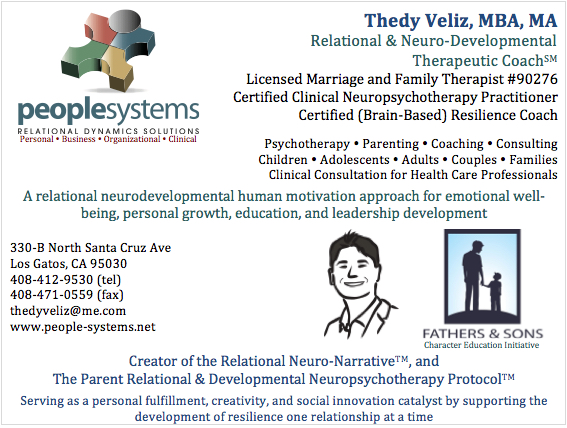Working with Adults
“Emotional and behavioral symptoms communicate a disregulation of the stress response system which are best suited by interventions that soothe the anxious brain in order to strengthen the smart brain to transition the client from an avoidant, reactive and anxious state to an open, proactive, and resilient approach to life”
Adults usually come to therapy when they start noticing that ‘something appears to be off’ in their lives. They might be feeling depressed, anxious, lost and unmotivated. They might be questioning their life’s purpose and meaning. While they might have been able to build a successful career, family, network of friends, and place in their community, they might start to realize that something is missing in their lives. They might have a stable spouse, but feel disconnected from their partner or they might realize that they pursued a career that they are not happy with anymore. Others might be unable to find a stable relationship, and might feel alone. Sometimes the discomfort is expressed by women as feelings of sadness and depression; whereas men display feelings of anger, recklessness and self-destructive behavior. Regardless of the symptom, many of the above-mentioned themes appear to be at play underneath the presenting problem.

Our modern society is able to easily seduce us into staying busy. The busier we are, the less time we have to reflect on our lives. Louis Cozolino, PhD, refers to this constant state of ‘busi-ness’ as a manic defense that people use to avoid taking stock of their life. In his book The Neuroscience of Psychotherapy: Building and Rebuilding the Human Brain, Cozolino makes reference to the British Child Psychoanalyst and Pediatrician Donald Winnicott by writing:
“Winnicott felt that manic defenses are one result of a lack of the capacity to be alone. If manic defenses are chronically employed, they can become a way of life and keep children and adults from experiencing the psychological ground for neural integration. Impulsive behaviors and thoughts, disconnected from self-reflective processes, serve the purpose of avoiding awareness of unaddressed feelings and needs; to these individuals, to feel is to feel bad. The experience of the inner world is paired with discomfort, sadness, isolation, and shame from a time before conscious awareness. This early stimulus-response pairing serves as an unconscious assumption or background affect throughout life” (Cozolino, 2002, p. 199-200).

Yet, our manic defenses are usually unable to defend against everything. In the end, sooner or later, life catches up with us and we find ourselves experiencing an event that rattles our core. These events might include a birthday (e.g., turning 30, 40, or 50), work stress, the sudden death of a loved one, a divorce, the loss of a job, or relational problems with a child.
Anna Quindlen, the #1 New York Times bestselling author, alludes to this situation in her book Being Perfect. She writes:
“Someday, sometime, you will be sitting somewhere. A berm overlooking a pond in Vermont. The lip of the Grand Canyon at sunset. A seat on the subway. And something bad will have happened: You will have lost someone you loved, or failed at something at which you badly wanted to succeed. And sitting there, you will fall into the center of yourself. You will look for some core to sustain you. And if you have been perfect all your life and have managed to meet all the expectations of your family, your friends, your community, your society, chances are excellent that there will be a black hole where that core ought to be” (Quindlen, 2005, p. 47).
My experience has been that while a particular life-changing event is what motivates adults to seek counseling, underneath there appears to be what I call ‘relational unfinished business’ which soon becomes the major topic to be address in treatment.

This 'relational unfinished business' affects the person’s sense of identity and purpose due to its connection with the person’s view of self and view of others whose source might have never been explored. As Cozolino stated above, since much of the feelings that are troubling the person came about prior to the person having conscious awareness, such feeling states can’t be wrestled with via cognitive means as they reside in implicit memory in parts of the brain that predate the development of the prefrontal cortex. This dynamic is explained in detail by the work of Daniel Siegel, MD (Siegel, 2012) and Allan Schore, PhD (Schore, 1994, 2003a, 2003b, 2012). Thus, to access the person’s ‘relational unfinished business,’ the treatment path is the development of a therapeutic relationship through which the client is able to revisit relational challenges. By reliving experiences that have been stored in pre-cortical areas of the brain through a safe contained relationship, the client is now able to bring the experiences into awareness and connect the feeling states with thoughts and behaviors.

As explained by Daniel Siegel, MD in his book The Developing Mind: How Relationships and the Brain Interact to Shape Who We Are (2nd Edition) (Siegel, 2012) and The Whole Brain Child: 12 Revolutionary Strategies to Nurture Your Child’s Developing Mind (Siegel & Brayton, 2011), the person is now able to connect information and processes that reside and take place in different areas of the brain (e.g., right and left, cortical and pre-cortical) while weaving a cohesive life narrative.
Emotional and mental health appear to be related to owning and integrating into a cohesive life narrative all aspects of our history with heavy emphasis on feeling states that welcome the entire realm of human emotions (e.g., anger, sadness, fear, greed, guilt, happiness).
References
- Cozolino, L. (2002). The neuroscience of psychotherapy: building and rebuilding the human brain (norton series on interpersonal neurobiology). WW Norton & Company.
- Quindlen, A. (2009). Being perfect. Random House.
- Schore, A. N. (1994). Affect Regulation and the Origin of the Self: The Neurobiology of Emotional Development. Hillsdale, NJ: Laurence Earbaum Associates.
- Schore, A. N. (2003a). Affect dysregulation and disorders of the self. New York: W. W. Norton & Company.
- Schore, A. N. (2003b). Affect regulation and the repair of the self. New York. NY: W. W. Norton & Company.
- Schore, A. N. (2012). The science of the art of psychotherapy. New York. NY: W. W. Norton & Company.
- Siegel, D. J. (2012). The developing mind: How relationships and the brain interact to shape who we are. New York, NY: Guilford Press.
- Siegel, D. J., & Bryson, T. P. (2011). The whole-brain child: 12 revolutionary strategies to nurture your child's developing mind. Delacorte Press.
